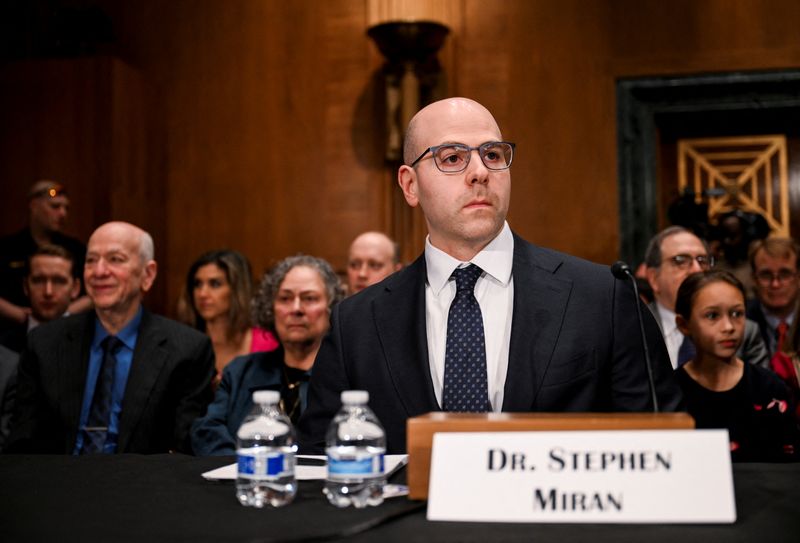Navitas stock soars as company advances 800V tech for NVIDIA AI platforms
Investing.com - The race to replace current Federal Reserve Chair Jerome Powell is likely to heat up in the autumn, with clarity emerging around the succession at the helm of the U.S. central bank by the end of the year, according to analysts at Deutsche Bank (ETR:DBKGn) Research.
In a note, the bank argued that, unless Powell’s replacement is chosen from current members of the Fed’s Board of Governors, the next chair will "likely fill" the seat recently vacated by Adriana Kugler.
President Donald Trump recently tapped top economic adviser Stephen Miran to take the place of Kugler, who unexpectedly submitted her resignation on August 1, prior to her term’s expiration in January.
If confirmed by Senate lawmakers, Miran would have the ability to vote on upcoming interest rate decisions. Notably, Miran has been a consistent supporter of Trump, who has himself been deeply critical of a decision by the Fed and its Chair Jerome Powell not to quickly ratchet down rates.
Trump has said miran will serve in the role temporarily, but hinted that it could be extended.
The Deutsche strategists predicted that Miran will be an "ardent" backer of the White House’s call for rate cuts this year, could have an impact on a review of the Fed’s communication strategies, and possibly advocate for overhauls at the central bank that may "weaken [its] independence."
"While a few months term would limit Miran’s ability to influence these changes, he could set the stage for a more
serious debate around Fed structure by the next chair," the analysts wrote.
Still, current Fed Governor Christopher Waller is seen as being one of the frontrunners to succeed Powell, they noted.
"Powell’s replacement would [...] need to be able to convince his colleagues that less restrictive [slash] more accommodative policy is appropriate," the analysts said.
"For that reason, [...] the pitch for lower rates could be more difficult for candidates who are coming from outside the Fed, particularly if they have been critical of the central bank or have had to support economic policies that could raise questions about the Fed’s independence [.]"
